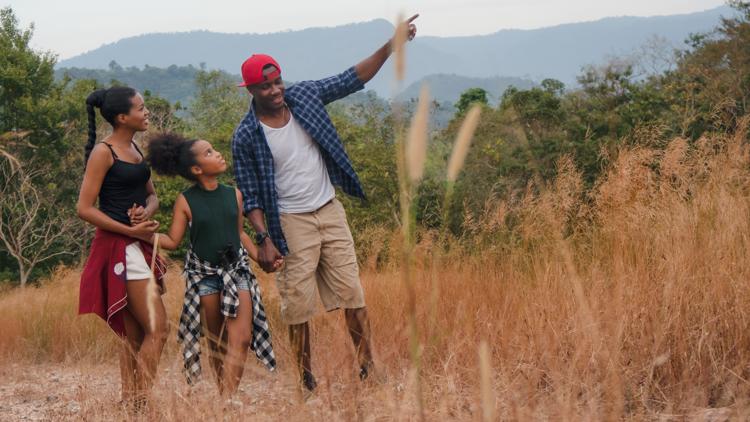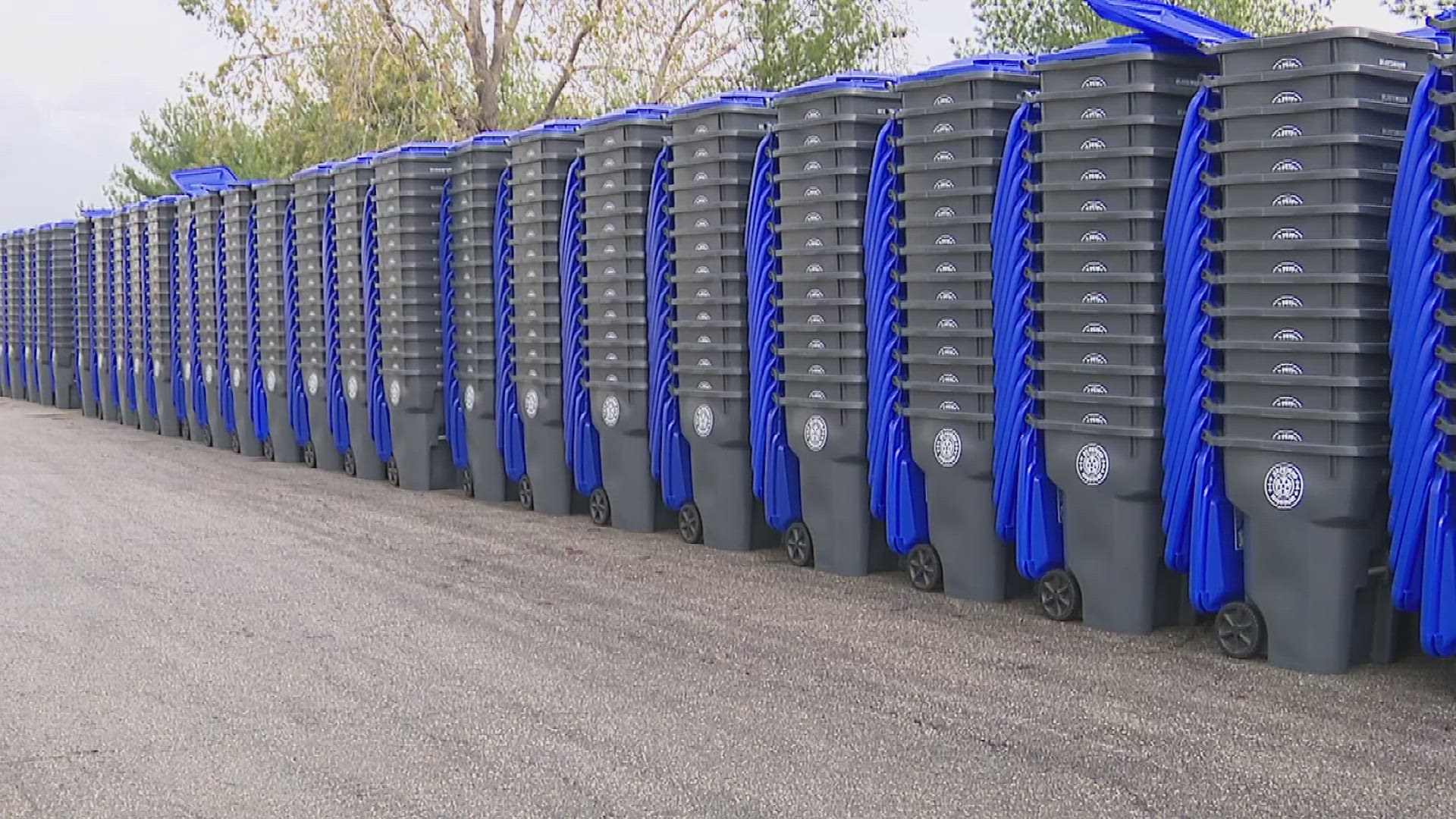ST. LOUIS — St. Louis native Leah Thomas, commonly known as "Green Girl Leah," has revolutionized the idea that saving the earth begins with saving all the people on the earth.
The 29-year-old has created an ecosystem, Green Girl Productions, for her work. Her book, "The Intersectional Environmentalist: How to Dismantle Systems of Oppression to Protect People + Planet," and her nonprofit, Intersectional Environmentalist, are just a few things living in that ecosystem.
This year Thomas made the Forbes 30 under 30 list, and throughout the last decade, she has emerged as an environmental leader making her way onto several other notable lists.
Before she became "Green Girl Leah," Thomas was a resident of Florissant and a student at Mary Institute and Saint Louis Country Day School (MICDS).
"So I started studying environmental science after the Ferguson uprisings ... I was home for the initial uprisings and then went to school in California and just thought like, 'How can I help?'" she said.
"I was finding so much healing in California and nature. And I really wanted to make sure everybody had that," Thomas said.
The environmental aspect of what was happening was absent and Thomas wanted to be the remedy.
During a summer job as a park ranger, she worked at a historically Black park.
"So I learned (that) a lot of Black history is environmental history. And that felt really empowering after the events of Ferguson. And I just wanted to kind of uncover those stories for a lot of people," Thomas shared.
But then in 2016, when Thomas graduated from college, she decided to share her previous experience at a private and predominantly white high school on LinkedIn. The post went viral and showed her the power of her voice.
So she began to write even more using her blog.
A few years later, Thomas posted an environmental pledge on her Instagram page. Again, the post went viral.
"I was really frustrated because again, my environmental journey started because of Ferguson," Thomas said. "And then here we are in 2020, having similar conversations at a grander national scale. So that's when I started talking about intersectional approaches to environmentalism, and how we need to make sure that social justice is being looked at in the environmental movement. Because so many communities didn't have access to clean air, clean water, etc."
Thomas began her nonprofit, calling that era a scary one.
"But I wanted to rise to the occasion because I really wanted to get the message out there, and then, also being from St. Louis, I just wanted to represent for my city," she said.
Thomas then decided to leave her job at Patagonia, her dream company, to pursue environmental justice.
"I really want other folks that look like me to understand like environmental communications is an emerging field," she said. "Environmental communications is a thing that we really need, especially with cultural competency."
Black and Brown people have often been left out of the environmental conversation, she said.
"I use the word environmentalist because I'm trying to reclaim it and show people that you don't have to summit mountains. You can literally just go on a walk every day, or park, etc."
Thomas shared that she believes many American heroes are environmentalists. She used examples like George Washington Carver, who made agricultural boxes, and people like Harriet Tubman, who used nature for our freedom.
Today, many Black and Brown people are environmentalists even if they do not use that term, Thomas said.
"I think that recontextualizing can help people of color feel more included in the movement and understand that yeah, environmental history is also Black history, which I think is cool, and then, I think, would maybe get people more interested in understanding environmental injustice and knowing that it's not just a problem for like tree huggers," she said.
The bar needs to be on the ground when it comes to what makes people environmentalists, according to Thomas.
"Just go outside," she said.
Thomas believes that the radioactive waste found near the building formerly known as Jana Elementary School in the Ferguson-Florissant School District is not the only place that needs to be tested.
"Something that's frustrating in this research is that it's really easy to find statistics like the Environmental Protection Agency has reported in the past. Like, okay, 70% of African American communities suffer with air quality that violates Federal air quality standards. So if you can find that data pretty easily, but then the everyday person doesn't really know it," Thomas said.
Thomas has worked to relay a message that is not filled with hopelessness. She said she doesn't want to burden an already burdened community.
Yet, she feels that this issue is "also really urgent because our communities need to understand what's going on."
According to a 2021 article published by the Environmental Protection Agency, Thomas' urgency is valid.
“The impacts of climate change that we are feeling today, from extreme heat to flooding to severe storms, are expected to get worse, and people least able to prepare and cope are disproportionately exposed,” EPA Administrator Michael S. Regan said in the article. “This report punctuates the urgency of equitable action on climate change. With this level of science and data, we can more effectively center EPA’s mission on achieving environmental justice for all.”
Thomas is currently working on another book and an environmental project involving music. Thomas has collaborated with R&B and hip-hop artists to convey an environmental message by utilizing parts of the Black culture.
Ferguson became the catalyst for Thomas' life's work. In doing so she has inspired others to address critical blind spots right here on planet earth.



